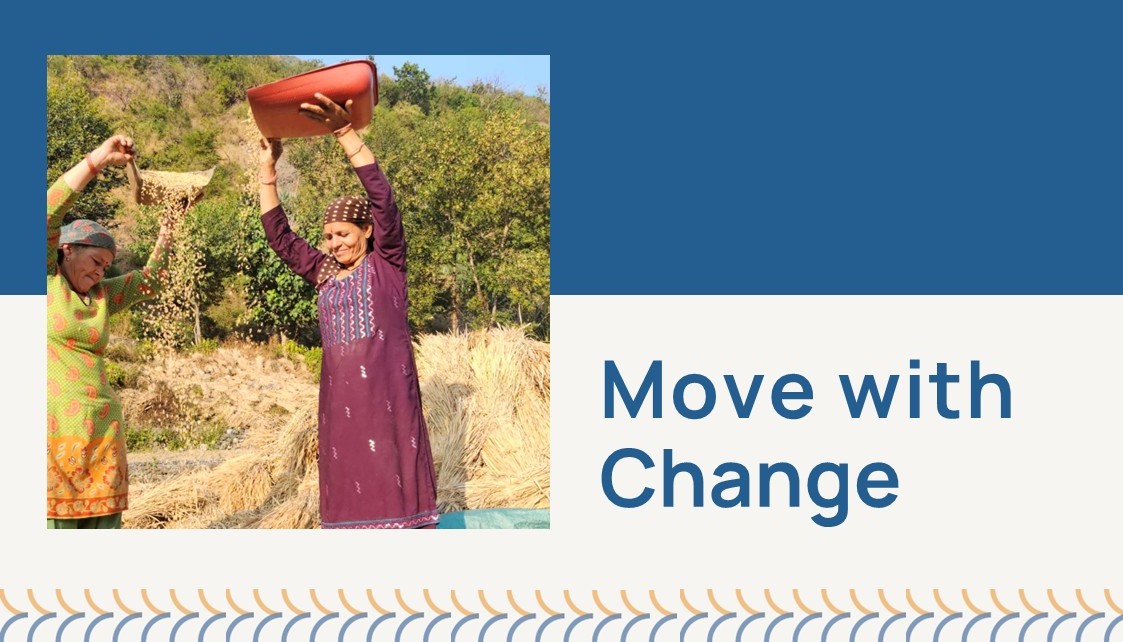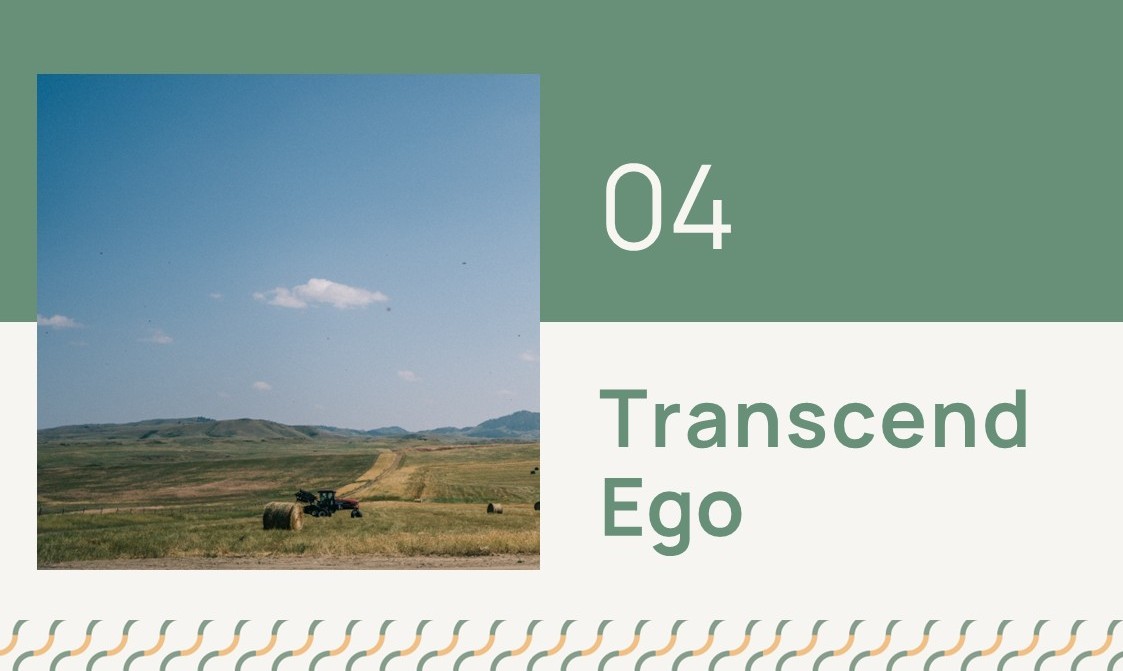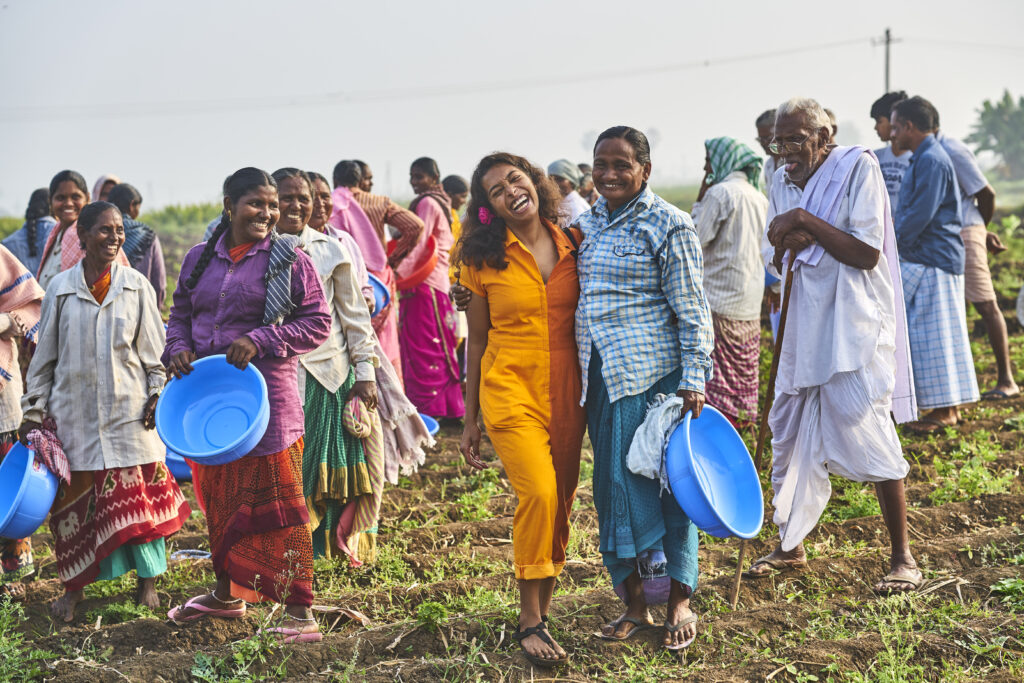
“How do you take 400 years of a terrible, stale system, and reimagine it to be the most idealistic, hopeful, joyful, colorful version of itself?”
This question has guided Sana Javeri Kadri (in orange, above) since she founded Diaspora Spice Co. in 2017. From the beginning, she was determined to build a spice trade that was the opposite of its colonial roots: equitable instead of exploitative, regenerative instead of extractive, delicious instead of dry and dusty.
Financing from RSF helped make that vision a reality. By offering Diaspora the working capital they need to grow, RSF is helping them build a spice trade that works for people and planet alike.
A hunger for home
As Sana tells it, the story of Diaspora begins with one bad turmeric latte too many.
“I was like, who’s growing this?” said Sana. “I was just finding that when products came from the Global South, they weren’t being sourced equitably. And frankly, they didn’t taste very good.”
At the time a recent Pomona College graduate living in the Bay Area, Sana Javeri Kadri found herself frustrated by the dull, bitter turmeric available in the US, a far cry from the vibrant spice she had grown up with in Mumbai. That disappointment sparked a deeper curiosity about where and how spices are grown and traded. She booked a one way ticket home to trace the roots of the turmeric she remembered, unknowingly beginning the journey that would lead to building a radically transparent spice company.
For six months, she visited farms, met with spice experts, and conducted “highly unpaid” market research. Eventually, she found a partner in her vision for a fairer and tastier spice trade: Prabhu Kasaraneni, a turmeric farmer in the state of Andhra Pradesh.
Farmers like Mr. Kasaraneni, says Sana, “are doing an incredible job growing regenerative, but they don’t have access to [the US] market.”
That meeting with Mr. Kasaraneni planted a seed. After meeting him, Sana decided to found a company that would deliver US consumers high-quality spices – and deliver talented farmers the better wages they deserve.
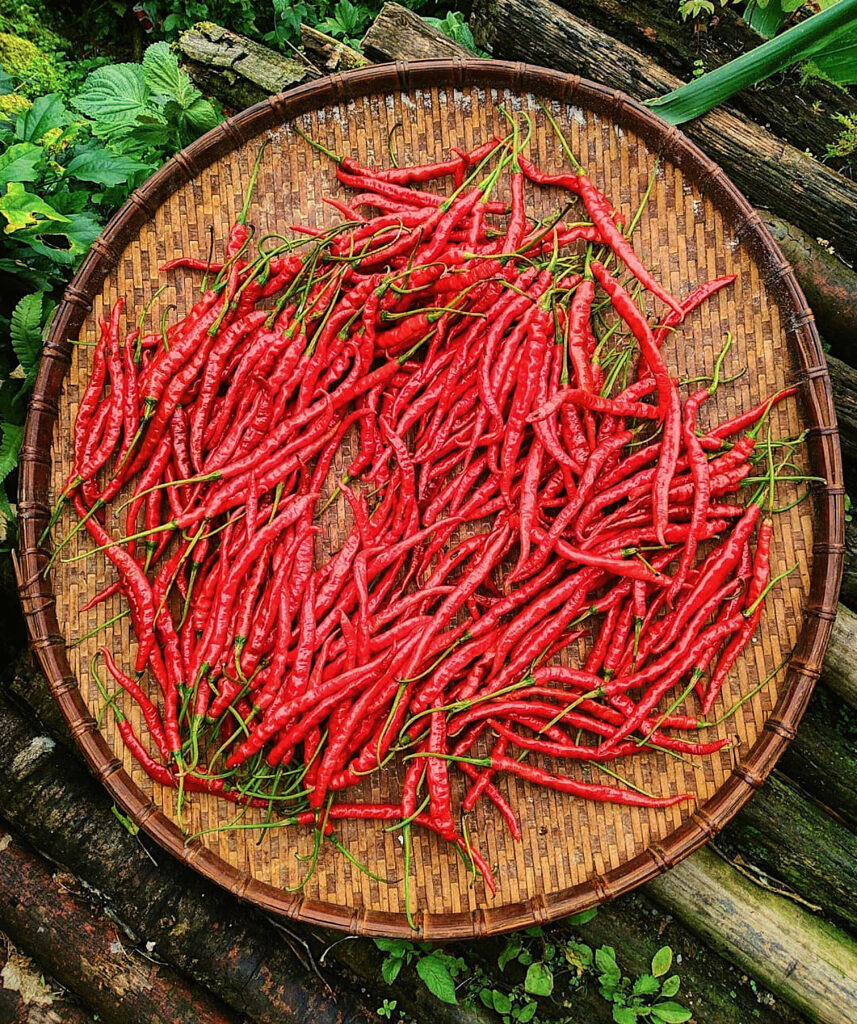
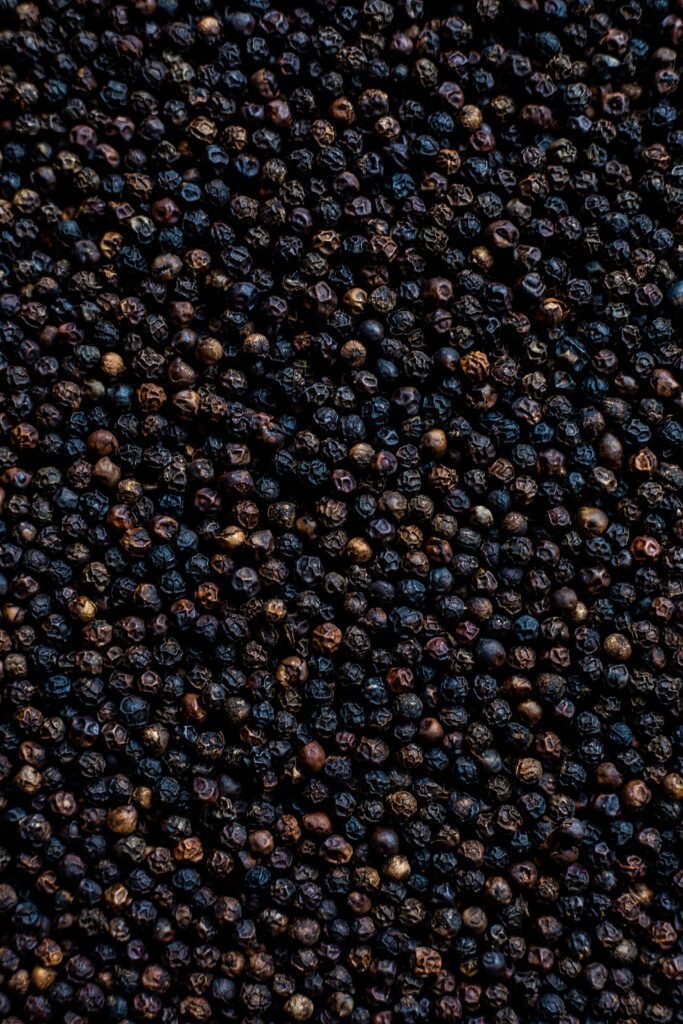
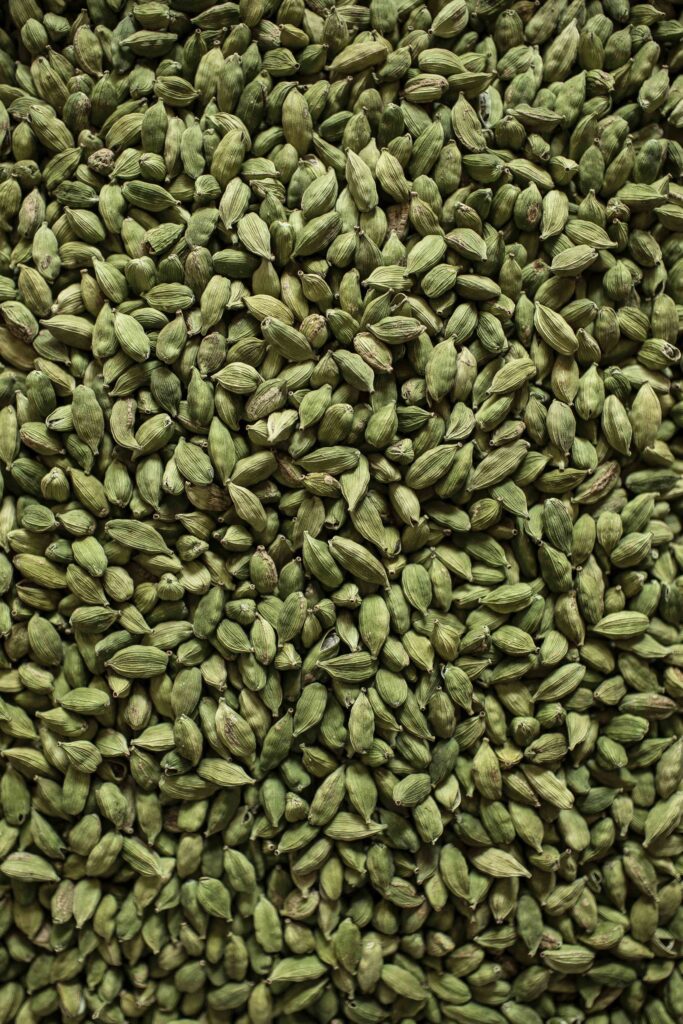
Undoing a destructive legacy
The modern-day spice industry is a legacy of a centuries-old spice trade that enriched colonial powers at the expense of the people and the land in spice-growing regions. Little has changed since the days of the East India Company: in much of South Asia, farmers earn next to nothing for their hard labor, industrial agriculture ravages the earth, and consumers cook with flavorless spices that have languished in warehouses for years.
From the beginning, Diaspora was determined to do things differently.
First and foremost? Fair wages. “The average farmer in India earns about $2,600 per year,” says Sana. “But we’re not letting the global market for turmeric decide how much we pay our turmeric farmer. We’re looking at his labor bill, his water bill, his seed cost. We’re factoring in that it’s grown regeneratively – and that it’s the best turmeric that the world has ever seen.”
Diaspora pays their farmers an average of six times the commodity price – well above the 15% premium mandated even by Fair Trade certification. The impact, says Sana, is immediate.
“The first year that a farmer starts working with us, they usually buy a smartphone,” says Sana. “The second year, they will usually send their children to a better school. And year three is usually the year that they start making upgrades to the farm.”
The impact of Diaspora’s model doesn’t stop there. Across the board, the farmers that Diaspora sources from are “regenerative by default,” abstaining from chemical pesticides and fertilizers, cultivating heritage crop varietals, and investing in biodiversity and soil health.
Almost always, these regenerative techniques build resilience to the impacts of climate change. “Devastating drought and heat hit our cardamom farm region,” Sana shares. “Other cardamom farms have completely wilted, dead plants. But our cardamom farmer has grown an eight-layer rainforest, so his cardamom plants are protected from the worst of the tremendous, horrible heat that the cardamom plant usually wouldn’t be able to withstand.”
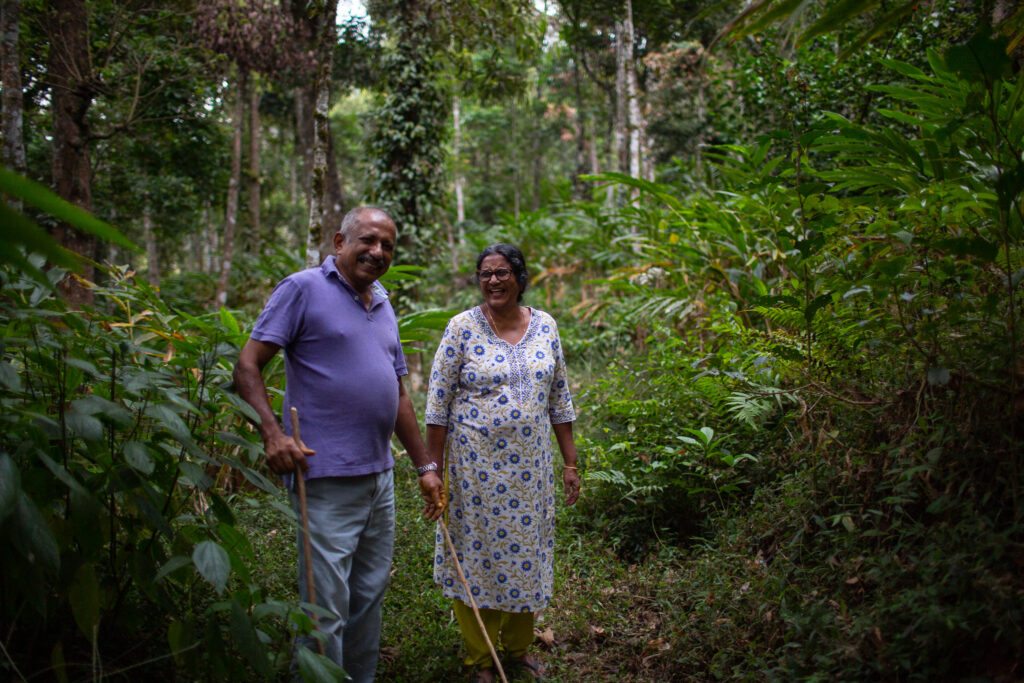
Financing a fairer spice trade
An important part of Diaspora’s more equitable model is paying farmers fairly, up front, and on time.
We give [farmers] a 30% advance before the harvest comes in, when they have the most upfront costs. We give them another 30% when the harvest comes in, and then we give them the final 40% when we receive the product,” says Sana. “That is a very tough cash position to constantly be in. But it is also the most equitable way to run our business.”
To make this model work, Diaspora needed working capital – credit that they could draw from to pay farmers up front, then pay back once they sold their spices a few months later. But finding a lender proved difficult.
“As an immigrant to this country, I didn’t have connections to find capital at all,” shares Sana, “let alone the slow or values aligned kind.”
When a Diaspora board member connected her to RSF, it was an immediate match. RSF has a long history of lending to regenerative agricultural businesses with similar financing needs, and we shared Diaspora’s vision for a better spice industry.
We initially offered them a $150,000 line of credit in 2021, expanded to a $750,000 line of credit in 2022, and extended an additional $100,000 line of credit in 2024. This financing has helped Diaspora pay farmers in full upfront – and fueled their steady growth.
“I feel very lucky that early on, I had mentors and advisors that really urged me to find financing that was so values aligned,” Sana says.
“It’s financing that has been very flexible for our needs as we grow, recognizing that small businesses need constantly different and complex things because the face of business is constantly changing,” she continues. “Y’all believe in a future that is regenerative, and deeply care about the mission of our work as part of it.”
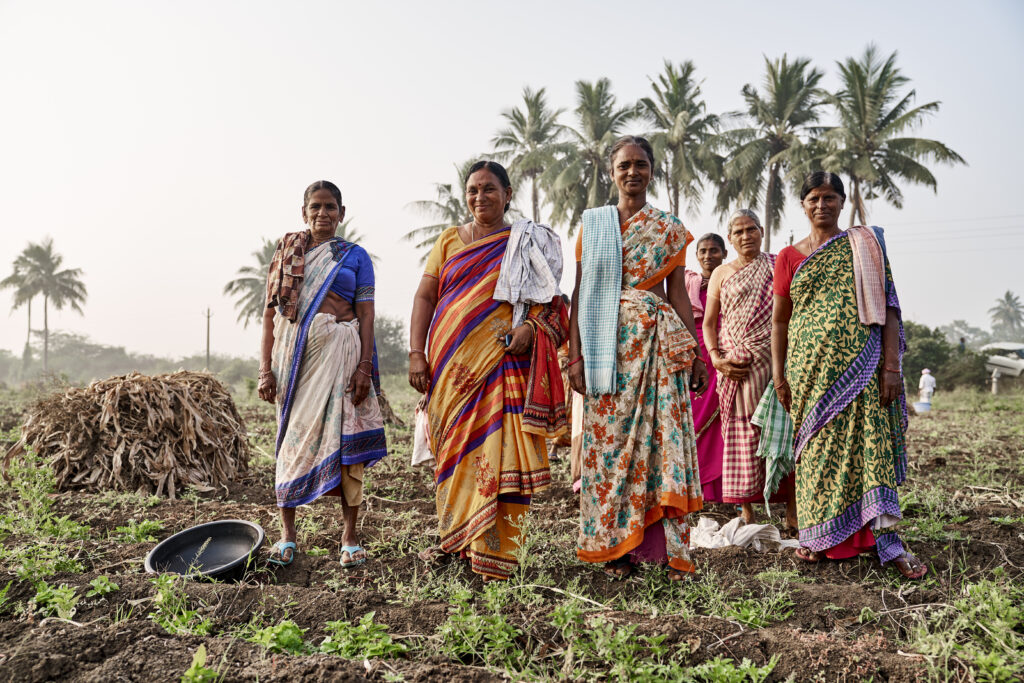
From one farm to 150
Sana founded Diaspora in 2017 with a partnership with a single farmer. Today, Diaspora sources from more than 150 regenerative farms across India and Sri Lanka. That’s 150 farms investing in healthy local environments, providing steady incomes for producers, their employees, and their families, and supplying the highest-quality spices to consumers around the world.
Diaspora’s next chapter: developing a cookbook that teaches people the best ways to bring those spices to life.
Since 2024, Sana and her team have traveled across India and Sri Lanka gathering recipes from their farm partners – from delicacies reserved for feasts and celebrations to hearty everyday meals.
To Sana, this project is deeply connected to Diaspora’s broader mission. “How do we educate [consumers] on where these ingredients come from and how they are cooked there?” she asks.
The answer: giving those consumers “the best fish curry recipe of your life, where black pepper is the fundamental ingredient – so that you know how to cook with these ingredients in the ways that they are intended to be cooked.”
Sana bets that the cookbook will expose a new generation of home cooks to the flavors and dishes that inspired her to found Diaspora nearly a decade ago. In the process, they’ll learn more about the ingredients behind those recipes – and grow the market for sustainably produced, ethically sourced spices.
“We want to take this aisle of the grocery store that has been very stale and sort of forgotten, and make it an aisle filled with inspiration and color and flavor,” Sana says. “That’s the Diaspora dream.”
Want to learn more about how RSF supports social enterprises like Diaspora Spice Co?
- Learn more about our investments in regenerative food and agriculture
- Learn more about our financing options and how to apply for a loan for your enterprise
- Learn more about how you can support impact like this by investing with RSF

